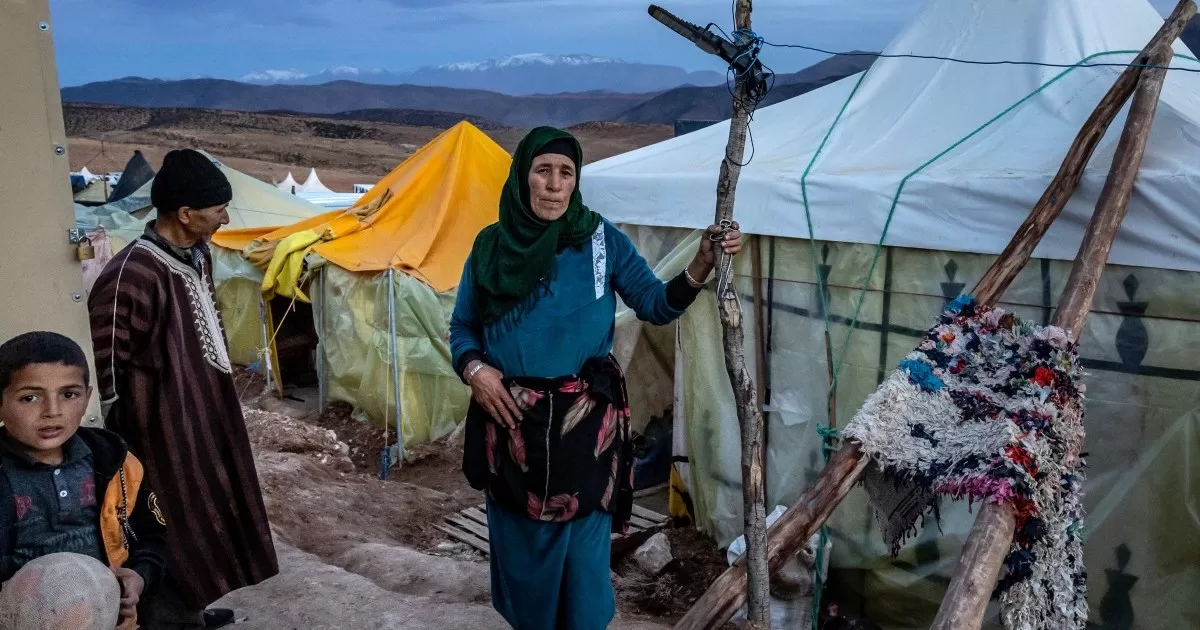Every day, he or other villagers come to inspect the debris. They hope to find pieces of wood for heating and cooking or even to recover objects of value that have so far escaped their searching, and all the while, a bitter Oubelaid wonders when he will get the government aid that he applied for.
“Every time I ask, they tell me it’s going to happen,” Oubelaid, 35, said. “But I have children to feed and to clothe.”
Moroccan authorities said about 3,000 people died during the magnitude 6.8 earthquake that struck on September 8, damaging more than 60,000 houses.
From Oubelaid’s village of Douzrou, about 80km (50 miles) southeast of Marrakesh, residents give a death toll of about 80.
A pink and white mosque minaret stands out among the rubble of the village that clung to the mountainside.
The survivors, 150 families, found refuge a few kilometres away on rocky ground beside a road with a view of snow-capped mountains.
About 120 of them have received help from the government. They either got a 2,500-dirham ($250) monthly stipend or 20,000 dirhams ($1,990) for reconstruction.
The rest, like Oubelaid, said they don’t know why they received nothing.
By the end of January, the Moroccan government said about 57,600 families had received the monthly stipend and more than 44,000 households obtained the reconstruction aid.
Prime Minister Aziz Akhannouch said the government “sets itself the challenge of responding to the expectation of the local population with promptness and efficiency”.
Yet some remain desperate for help.
Local media said hundreds of people from areas south of Marrakesh in Taroudant province and the town of Talat Nyacoub have demonstrated since January against the delayed payments and reconstruction aid during difficult winter conditions.
Last month, a left-wing member of parliament, Fatima Tamni, said while questioning Interior Minister Abdelouafi Laftit that reconstruction efforts “remain immersed in obscurity and improvisation”.
She called on Laftit to take action, according to the Hespress news website.
The Moroccan government said some applications were rejected because residents did not live in the affected areas at the time of the earthquake or because their homes were still inhabitable.
In larger towns like Amizmiz, workers and backhoes are busy.
Things seem to have returned to normal, even as families still live in dozens of yellow tents donated by authorities. Covered with tarpaulins for protection against the rain and mountain cold, the tents occupy every patch of empty land.
